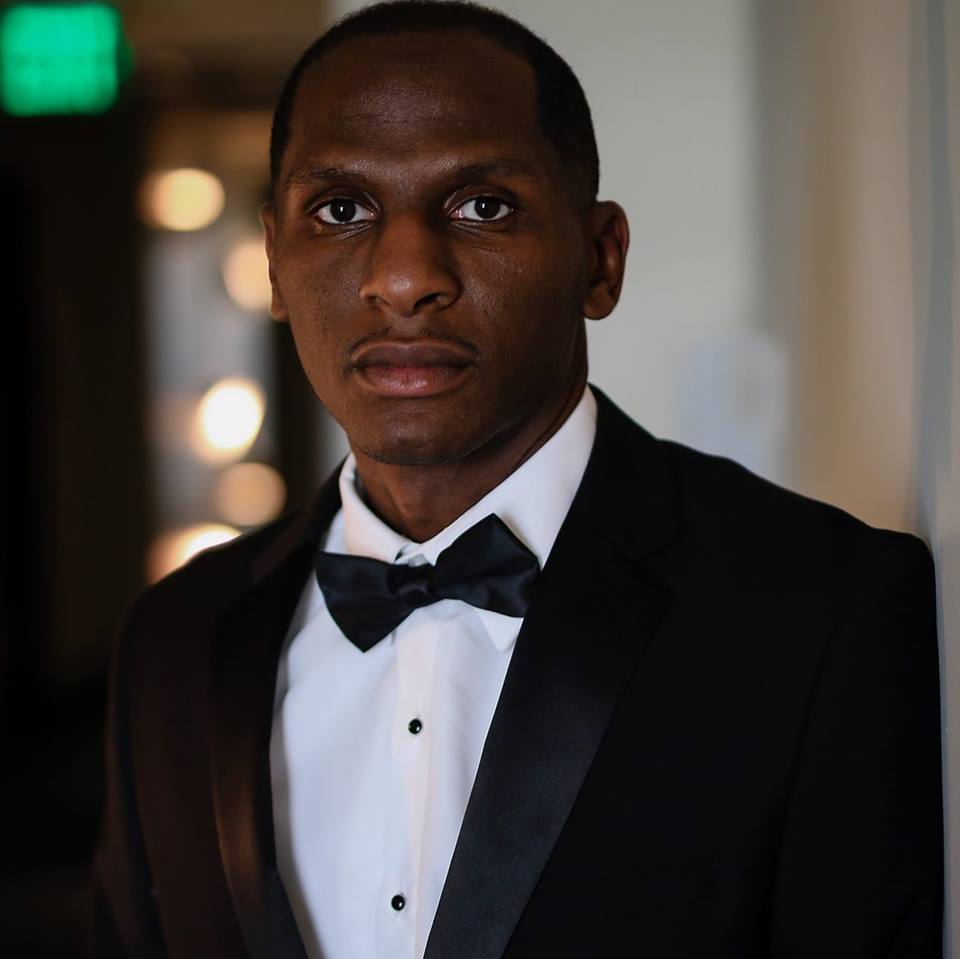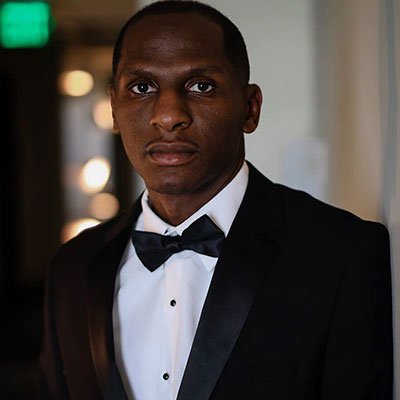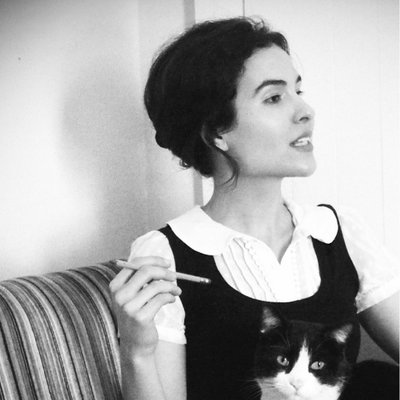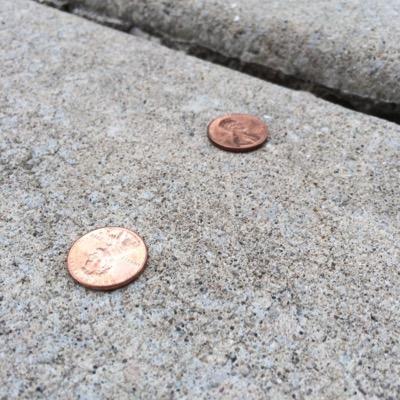Know Your Blogger Series

Googling how much I need to retire somehow led me to Mr Money Mustache. And led me down the rabbit hole of FIRE. Many of the blogs I read were written by much younger people who had already FIRE’ed or intending to FIRE in their 30s and 40s. And here I was, just beginning the journey at 47.
Check out our Q&A with Latestarterfire here.
During these weekly features, we are hoping to provide a way for you to interact and learn more about different blogs in the personal finance space.
Below, you can read more about the story behind Latestarterfire, learn about the author, and learn personal finance tips from Latestarterfire to help you improve your financial situation.
A big thanks for Latestarterfire for this interview! Now, we will turn it over to the author for this interview.
Tell us about Latestarterfire
What makes you and your blog unique?
What does “being good with your personal finances” mean to you?
What are some habits you practice to keep your personal finances in order?
What are your three articles people should read to get to know you and your message better on your site?
For someone looking to improve their financial situation, what’s your best advice?
What’s an area of your life which has benefited from improving your personal finances? Have there been any areas of your life which have suffered?
In your opinion, what’s better? Renting a place or buying a house to live?
In your opinion, what’s better? Focusing on increasing your income, or focusing on decreasing your expenses?
Do you have any financial mistakes you’d like to share, and how have you grown from these mistakes to improve your personal finances?
What’s a non-money related interest you have and what do you love about it?
How You Can Contact Latestarterfire for More Information
Thank you for reading this interview, and thank you, Latestarterfire, for providing us with some great personal finance tips!

Know Your Blogger Series

As the blog has grown, MLW’s mission is to help others with managing their finances, creating income, and providing them with the necessary perspective to live a meaningful life.
Check out our Q&A with Money Life Wax here.
During these weekly features, we are hoping to provide a way for you to interact and learn more about different blogs in the personal finance space.
Below, you can read more about the story behind Money Life Wax, learn about the author, and learn personal finance tips from Money Life Wax to help you improve your financial situation.
A big thanks for Money Life Wax for this interview! Now, we will turn it over to the author for this interview.
Tell us about Money Life Wax
What Makes You and Your Blog Unique?
What does “being good with your personal finances” mean to you?
What are three articles people should read to get to know you and your message better?
For someone looking to improve their financial situation, what’s your best advice?
What’s an area of your life which has benefited from improving your personal finances? Have there been any areas of your life which have suffered?
In your opinion, what should you do first? Pay down debt, or invest?
In your opinion, what’s better? Focusing on increasing your income, or focusing on decreasing your expenses?
What’s a non-money related interest you have and what do you love about it?
Why do you believe learning about money and caring about personal finance is important?
How You Can Contact Money Life Wax for More Information
Thank you for reading this interview, and thank you, Money Life Wax, for providing us with some great personal finance tips!

Know Your Blogger Series

I focus on showing people in their early 20s how to get started on the climb to wealth; whether you’re debt-free or have loads of loans, whether you’re a newbie or a little advanced, it doesn’t matter. We’re out to get you to understand everything related to finance: budgeting, investing, income growth, adjusted mindsets, and overarching societal impacts are all discussed at length.
Check out our Q&A with We Want Guac here.
During these weekly features, we are hoping to provide a way for you to interact and learn more about different blogs in the personal finance space.
Below, you can read more about the story behind We Want Guac, learn about the author, and learn personal finance tips from We Want Guac to help you improve your financial situation.
A big thanks for We Want Guac for this interview! Now, we will turn it over to the author for this interview.
Tell Us About We Want Guac
What makes you and your blog unique?
What does “being good with your personal finances” mean to you?
What are some habits you practice to keep your personal finances in order?
What are your three articles people should read to get to know you and your message better on your site?
For someone looking to improve their financial situation, what’s your best advice?
In your opinion, what’s better? Focusing on increasing your income, or focusing on decreasing your expenses?
What is your favorite investment class and why? (stocks, private business, bonds, real estate, crypto, precious metals, etc.)
Do you have any financial mistakes you’d like to share, and how have you grown from these mistakes to improve your personal finances?
If you received a $5,000,000 windfall tomorrow, what would you do with the money?
Why do you believe learning about money and caring about personal finance is important?
How You Can Contact We Want Guac for More Information
Thank you for reading this interview, and thank you, We Want Guac, for providing us with some great personal finance tips!

Know Your Blogger Series

It is important to us to provide resources and knowledge for those who want to improve their financial lives as we did. Our overall goal is to normalize discussing your finances with others.
Check out our Q&A with How to FIRE here.
During these weekly features, we are hoping to provide a way for you to interact and learn more about different blogs in the personal finance space.
Below, you can read more about the story behind How to FIRE, learn about the author, and learn personal finance tips from How to FIRE to help you improve your financial situation.
A big thanks for How to FIRE for this interview! Now, we will turn it over to the author for this interview.
Tell us about How to FIRE
What makes you and your blog unique?
What does “being good with your personal finances” mean to you?
What are some habits you practice to keep your personal finances in order?
-
We budget every month as a couple and review our progress weekly
-
We have all of our investments set on autopilot
-
We never carry a credit card balance and pay our cards off in full each month
-
We plan for large purchases and never buy them before we have the money saved up
-
We create sinking funds for planned and unplanned expenses
What are your three articles people should read to get to know you and your message better on your site?
For someone looking to improve their financial situation, what’s your best advice?
What’s an area of your life which has benefited from improving your personal finances? Have there been any areas of your life which have suffered?
In your opinion, what should you do first? Pay down debt, or invest?
Do you have any financial mistakes you’d like to share, and how have you grown from these mistakes to improve your personal finances?
If you received a $5,000,000 windfall tomorrow, what would you do with the Money?
Why do you believe learning about money and caring about personal finance is important?
About the Author:
Thank you for reading this interview, and thank you, How to FIRE, for providing us with some great personal finance tips!
Know Your Blogger Series

As we explore the world, we share how-tos for financial independence, retiring early and slow travel. The goal of our blog and channel is to equip others to gain control of their finances so that they too can pursue the life of their dreams.
Check out our Q&A with Our Freedom Years here.
During these weekly features, we are hoping to provide a way for you to interact and learn more about different blogs in the personal finance space.
Below, you can read more about the story behind Our Freedom Years, learn about the author, and learn personal finance tips from Our Freedom Years to help you improve your financial situation.
A big thanks for Our Freedom Years for this interview! Now, we will turn it over to the author for this interview.
Tell us about Our Freedom Years
What makes you and your blog unique?
What does “being good with your personal finances” mean to you?
What are some habits you practice to keep your personal finances in order?
What are your three articles people should read to get to know you and your message better on your site?
For someone looking to improve their financial situation, what’s your best advice?
What’s an area of your life which has benefited from improving your personal finances? Have there been any areas of your life which have suffered?
In your opinion, what’s better? Renting a place or buying a house to live?
In your opinion, what’s better? Focusing on increasing your income, or focusing on decreasing your expenses?
Do you have any financial mistakes you’d like to share, and how have you grown from these mistakes to improve your personal finances?
What’s a non-money related interest you have and what do you love about it?
How You Can Contact Our Freedom Years for More Information
Thank you for reading this interview, and thank you, Our Freedom Years, for providing us with some great personal finance tips!

Know Your Blogger Series

What makes the blog unique is that I combine my love of hip-hop, economics, psychology to tell deeply personal stories. I share my highs, lows, insecurities, etc.
Check out our Q&A with Peerless Money Mentor here.
During these weekly features, we are hoping to provide a way for you to interact and learn more about different blogs in the personal finance space.
Below, you can read more about the story behind Peerless Money Mentor, learn about the author, and learn personal finance tips from Peerless Money Mentor to help you improve your financial situation.
A big thanks for Peerless Money Mentor for this interview! Now, we will turn it over to the author for this interview.
Tell us about Peerless Money Mentor
What makes you and your blog unique?
What does “being good with your personal finances” mean to you?
What are some habits you practice to keep your personal finances in order?
-
Practicing stealth wealth whenever possible.
-
Paying my credit card statement balance to avoid interest payments.
-
Analyzing my spending monthly to see if I need to eliminate a bill.
What are your three articles people should read to get to know you and your message better on your site?
For someone looking to improve their financial situation, what’s your best advice?
What’s an area of your life which has benefited from improving your personal finances? Have there been any areas of your life which have suffered?
What are your favorite personal blogs and bloggers you have been inspired by?
In your opinion, what’s better? Renting a place or buying a house to live?
-
$5,000 to replace the roof
-
$7,000 to replace the AC unit
-
$800 to get rid of termites
Do you have any financial mistakes you’d like to share, and how have you grown from these mistakes to improve your personal finances?
-
Racking up over $10,000 in credit card debt
-
Purchasing a car that was the same amount as my salary
-
Not enrolling in my employer’s health care plan right out of college
What’s a non-money related interest you have and what do you love about it?
How You Can Contact Peerless Money Mentor for More Information
Thank you for reading this interview, and thank you, Peerless Money Mentor, for providing us with some great personal finance tips!

Know Your Blogger Series

Check out our Q&A with Savvy History here.
During these weekly features, we are hoping to provide a way for you to interact and learn more about different blogs in the personal finance space.
Below, you can read more about the story behind Savvy History, learn about the author, and learn personal finance tips from Savvy History to help you improve your financial situation.
A big thanks for Savvy History for this interview! Now, we will turn it over to the author for this interview.
Tell us about Savvy History
What makes you and your blog unique?
What does “being good with your personal finances” mean to you?
What are some habits you practice to keep your personal finances in order?
What are your three articles people should read to get to know you and your message better on your site?
For someone looking to improve their financial situation, what’s your best advice?
What’s an area of your life which has benefited from improving your personal finances? Have there been any areas of your life which have suffered?
In your opinion, what’s better? Renting a place or buying a house to live?
In your opinion, what’s better? Focusing on increasing your income, or focusing on decreasing your expenses?
What’s a non-money related interest you have and what do you love about it?
Why do you believe learning about money and caring about personal finance is important?
How You Can Contact Savvy History for More Information
Thank you for reading this interview, and thank you, Savvy History, for providing us with some great personal finance tips!
Know Your Blogger Series

My tagline is to live a more purposeful life one cent at a time, and I think even after half a decade, that’s still my purpose. Though my blog is really about chronicling my own journey and holding myself accountable, I hope my message resonates with others, too. My husband and I are both teachers and we are new-ish parents, so I think our journey is pretty relatable.
Check out our Q&A with She Picks Up Pennies here.
During these weekly features, we are hoping to provide a way for you to interact and learn more about different blogs in the personal finance space.
Below, you can read more about the story behind She Picks Up Pennies, learn about the author, and learn personal finance tips from She Picks Up Pennies to help you improve your financial situation.
A big thanks for She Picks Up Pennies for this interview! Now, we will turn it over to the author for this interview.
Tell us about She Picks Up Pennies
What makes you and your blog unique?
What does “being good with your personal finances” mean to you?
What are some habits you practice to keep your personal finances in order?
What are your three articles people should read to get to know you and your message better on your site?
For someone looking to improve their financial situation, what’s your best advice?
In your opinion, what’s better? Renting a place or buying a house to live?
In your opinion, what should you do first? Pay down debt, or invest?
In your opinion, what’s better? Focusing on increasing your income, or focusing on decreasing your expenses?
Do you have any financial mistakes you’d like to share, and how have you grown from these mistakes to improve your personal finances?
What’s a non-money related interest you have and what do you love about it?
How You Can Contact She Picks Up Pennies for More Information
Thank you for reading this interview, and thank you, She Picks Up Pennies, for providing us with some great personal finance tips!
Know Your Blogger Series

I believe anyone can be wealthy. They might just not know it yet. The mission of the blog is to provide knowledge and guidance to help everyone achieve a healthier financial life.
Check out our Q&A with Sport of Money here.
During these weekly features, we are hoping to provide a way for you to interact and learn more about different blogs in the personal finance space.
Below, you can read more about the story behind Sport of Money, learn about the author, and learn personal finance tips from Sport of Money to help you improve your financial situation.
A big thanks for Sport of Money for this interview! Now, we will turn it over to the author for this interview.
Tell us about Sport of Money
What makes you and your blog unique?
What does “being good with your personal finances” mean to you?
-
Fundamental knowledge of key concepts in personal finance – you need to know the basics such as compounding, interest, bonds, stocks, financing options, budgets, assets, liabilities, income, expenses, etc.
-
Understand your own financial situation – how do you spend money? how much assets do you have? What is your debt load and how much interest are you paying on the debt?
-
Create a financial plan – where do you want to be net worth wise 5 years from now? How do you increase your income by 2 folds in 3 years? Use a budget to keep track of your expenses.
-
Monitor and track how you are progressing – are you doing as well as your plan? What are things you can do better?
-
Reward yourself on achieving financial goals – go splurge on an item or experience for hitting your financial target. Getting rewarded keeps the motivation up and provides excitement to continue along your financial path.
What are some habits you practice to keep your personal finances in order?
What are your three articles people should read to get to know you and your message better on your site?
For someone looking to improve their financial situation, what’s your best advice?
-
Put together a budget and start to track your expenses. Monitor your expenses to get a good handle over your expense items.
-
Take a look at all your debt. Arrange them from the highest interest rate to lowest. Try to deal with the most expensive debt first. Try to consolidate and refinance to a lower rate when possible. Mortgage rate is a great example. It is so low right now. If you obtained your mortgage more than 2 years ago, you should really shop around for a new mortgage.
In your opinion, what’s better? Renting a place or buying a house to live?
What should you do first? Pay down debt, or invest?
What’s better? Focusing on increasing your income, or focusing on decreasing your expenses?
If you received a $5,000,000 windfall tomorrow, what would you do with the money?
Why do you believe learning about money and caring about personal finance is important?
How You Can Contact Sport of Money for More Information
Thank you for reading this interview, and thank you, Sport of Money, for providing us with some great personal finance tips!

Know Your Blogger Series

My blog was born out of struggling my way through the startup grind, earning less than $20,000 a year while working 60+ hours a week for a company I built with friends. I was indoctrinated with the idea that the struggle equated to passion – and that earning next to nothing was a badge of honor.
Deprogramming that toxic belief system really changed everything for me. I was able to go from earning $38,000 to $95,000 in a single year, just by realizing that I needed to advocate for myself. By the time I was 25, I was able to purchase a house on my own in Los Angeles as a single woman.
Check out our Q&A with Tis But A Moment here.
During these weekly features, we are hoping to provide a way for you to interact and learn more about different blogs in the personal finance space.
Below, you can read more about the story behind Tis But A Moment, learn about the author, and learn personal finance tips from Tis But A Moment to help you improve your financial situation.
A big thanks for Tis But A Moment for this interview! Now, we will turn it over to the author for this interview.
Tell us about Tis But A Moment
What makes you and your blog unique?
What does “being good with your personal finances” mean to you?
What are some habits you practice to keep your personal finances in order?
What are your three articles people should read to get to know you and your message better on your site?
For someone looking to improve their financial situation, what’s your best advice?
-
Learning whether your career can be lucrative, and deciding whether that’s a priority to you.
-
Reach out to people who know your industry well, and learn what would make you successful. Or, if you just want to chat with a Recruiter who may know what makes you hirable, hey there.
-
Developing marketable (read: well-paying) skills for that career.
-
Advocating for yourself, and, if necessary, moving to greener pastures.
-
Building income-producing opportunities outside of your day job. For me, that’s meant taking on countless part-time jobs and freelance gigs, some of which I ended up loving like hosting trivia games at local pubs, working as a consulting recruiter, renting out space in my own home, and even blogging!
What’s an area of your life which has benefited from improving your personal finances? Have there been any areas of your life which have suffered?
In your opinion, what’s better? Renting a place or buying a house to live?
-
Some of my mortgage payment just goes to interest (gross), but a good chunk of it goes to my equity.
-
I benefit just from having time pass; while real estate values rise, so does my net worth.
-
Any new additions or fixes to the home also improve my net worth, and I can make decisions based on my priorities or preferences.
-
I can rent bedrooms, storage space, or parking spots to strangers without breaking rules in a lease.
-
And now that I’ve moved on to the next place, I can rent the whole house out!
What is your favorite investment class and why? (stocks, private business, bonds, real estate, crypto, precious metals, etc.)
Do you have any financial mistakes you’d like to share, and how have you grown from these mistakes to improve your personal finances?
If you received a $5,000,000 windfall tomorrow, what would you do with the money?
-
More hanging plants for my home office.
-
A commercial investment! Residential rentals are great, but what would be really great? Commercial properties. I’d start looking for a good syndication deal to put some of that money and my own sweat equity into!
-
A self-sustaining Giving Fund. I currently save a bit of money each month for my Random Acts of Generosity fund, but one of my goals for my 28th year is to establish a separate giving fund. I’m not exactly Miss Money Bags over here, but I’ll know I’ve made it once I can set up a long-term way to donate a small-but-mighty amount to great causes every year. Even better if I can do it in a way that uses the stock market to generate real good.
How You Can Contact Tis But A Moment for More Information
Thank you for reading this interview, and thank you, Tis But A Moment, for providing us with some great personal finance tips!
